The Animals: A Final Interview with the 5 Original Band Members
by Jeff TamarkinIn 1983, the five members of the classic original lineup of The Animals—Eric Burdon (vocals), Hilton Valentine (guitar), Alan Price (keyboards, background vocals), Chas Chandler (bass, background vocals) and John Steel (drums)—reunited to record a new album and to tour behind it.
That would be the final time that the quintet got together for any extended period to work on a project. Chandler would pass away in 1996 and, more recently, Valentine in 2021.
At the time of the ’83 reunion, future Best Classic Bands editor Jeff Tamarkin somehow managed to corral all five musicians into a hotel room to talk about the history of the group. Much of that interview has never been published, until now. The chat began with Burdon speaking solo, and he was then joined by the others.
The Animals were inducted into the Rock and Roll Hall of Fame in 1994.
This is the first of two parts. In the second half, coming soon, the Animals discuss why they split up, what they all did next, and the legacy of the band.
What was the impetus behind this reunion album, called Ark, and tour? The last time the original group was together was for the 1977 album, Before We Were So Rudely Interrupted.
Eric Burdon: I didn’t want to do it at first. It took a lot to persuade me to get involved. As recently as a week before the tour was to start, I wasn’t fully convinced. But we did a show at The Venue in London and it wasn’t our audience—it was the disco audience they have there every week—and we went over. It was just for kids off the street. The band worked well so I was convinced.
How does it feel to get back with your old mates? Is it as satisfying on a musical level?
EB: It feels pretty strange, pretty bizarre. You’ve got to be pretty careful to cater to people’s space and people’s attitudes. I’m more at ease and more flippant and more laid-back with other bands than I am with the Animals. You don’t know who you’re gonna hurt or insult or what memories are gonna come leaping back. But people want to see it happen, want us to give a little and maybe get something back.
Is it a nostalgia thing for you to get back together with these guys?
EB: Not really, no, because some of the new material is as much of a challenge with this band as it would be with any band. Alan Price’s strict sense of timing is a good lesson for me.
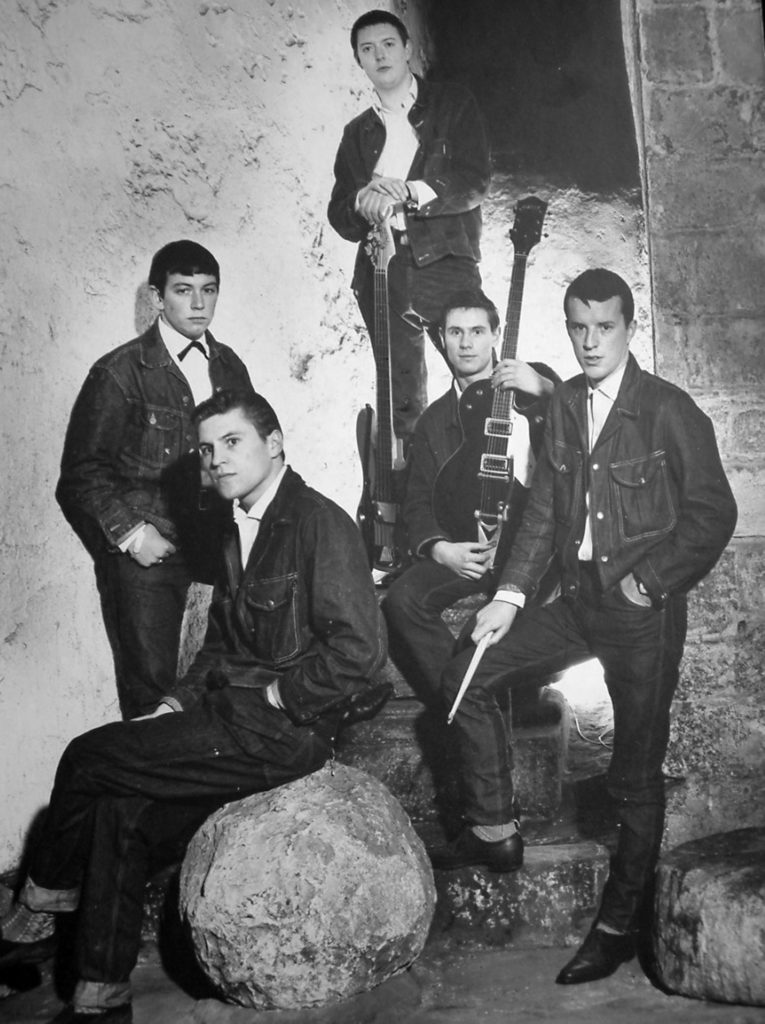
An early publicity photo of the Animals, from 1964 (l. to r.): Eric Burdon, Alan Price, Chas Chandler, Hilton Valentine, John Steel
Going back to the start, you all came from Newcastle. What kind of city was Newcastle in the early ’60s? Was there a lot of music happening?
EB: It was dirty, it was filthy, it was wet and raining all the time. A lot of kids didn’t have any shoes on their feet after World War II. I went to school between a barnyard, where the smell would make you sick if the wind was in the wrong direction, and a shipyard, so you couldn’t hear the teacher half the time because of the rivets going into the ships. But we had good times and there were lots of music clubs. Most of those northern cities were absolute wastelands.
What was the club scene like?
EB: There were several clubs and each one had its own kind of music. There was a folk club, a traditional jazz club, a modern jazz club, and one which featured different music every night.
How did you know about rhythm and blues? Did you have to do a lot of research to find out what the new records were?
EB: A lot of traveling. I went to Paris for most of my records. And a seaman who lived downstairs from me used to bring back records from the States.
Watch the Animals perform “Talkin’ ‘Bout You” in 1964
What was the first music you got into?
EB: The first rhythm and blues record I can remember hearing was Wynonie Harris doing “Don’t Roll Those Bloodshot Eyes at Me.” Then there was Johnnie Ray and “Cry.” Then came Elvis and I couldn’t distinguish whether he was male or female, black or white. Then came the period of trying to be the first kid on the block to be able to dissect the lyrics of the latest Chuck Berry record. Then it was down to hanging out in front of the jukebox for seven hours every Sunday. Then gangs started to form and kids got stabbed and it turned all weird.
Did you have a large record collection?
EB: Quite an extensive collection. As I said, Paris was the place to get American records. I remember getting [gospel singer] Clara Ward’s album from the Town Hall in New York and that was a treasured album. So was the live Ray Charles album from Atlanta. Ray Charles came to Europe in ’58 and I hitchhiked to try to see him. He was in the south of France, where it was hot, and I figured I’d have the same night as I heard on that record from Atlanta. It took me five days to get there and by the time I got there the show was over. So I hitchhiked back to Paris and I was fortunate enough to catch him in a nightclub there. I was totally into following the vibe then and that’s what was happening.
What did the French people make of him?
EB: It was bizarre because I remember hanging out at a jukebox in Paris and the French people and I communicated by saying, “Number 39, Ray Charles.” They’d say, “Fathead Newman, tenor sax,” and I’d say, “Yeah, ‘I Got A Woman.’” We became great friends and I remember saying, “Keep an eye out for my name because when I come back I’m gonna be performing.” The Animals later played the Olympia in Paris and they came backstage and it was a magic moment. We ended up playing there a lot; that was one of our favorite venues. It reminded me of the Apollo in New York. We played there too.
What made you decide to make the switch from being someone who listened to records to someone who sang and made records?
EB: When I got pissed [drunk] enough and got up enough courage to stagger to the front row and clutch at [blues artist] Mighty Joe Young’s pants leg and get up on stage. I was walking down the street one day and there was a Methodist youth club on the top of the hill and I heard “Great Balls of Fire” being played. I thought it was a new recording of Jerry Lee but it was a band. So I walked through the doors of this youth club and it was empty; there were only about a half dozen kids. There was a guy playing piano and a guy playing bass. The guy playing bass was Alan Price, and then they switched over and he was 20 times better than this other guy that sounded like Jerry Lee Lewis. I said, “We’ve gotta put a band together,” and that’s how we met.
Alan, how did you get started in all of this?
Alan Price: Eric was really instrumental in educating me. The reason I started playing is peculiar; it’s because I caught yellow jaundice when I was 11. I was out of school for nearly a year and there was a piano in my grandmother’s front room. I learned to play things like Beethoven by ear. And I could play New Orleans revivalist jazz because my brother was obsessed with that. I felt that rock ’n’ roll was beneath my dignity. So the big breakthrough for me was Lonnie Donegan and skiffle music, when every street had its group. I was converted to rock ’n’ roll by a German who played me some Chuck Berry. I had a group in school. I was a terrible homogenous mixture; I also played Fats Waller type stuff. When I met Eric, he introduced me to the blues. I was brought up in the church; I lost my father at an early age and was always surrounded by women so I’m very sort of emotional, sentimental chap and there’s a real family touch to everything I do. So I finally found a way of identifying with Ray Charles and the blues. When he used to cry, I understood and it made me very emotional. I studied it as though it were a subject. Eric introduced me to things like [blues singers] Joe Turner and Joe Williams. I tried to convert my piano playing style by playing like Albert Ammons and that stride piano style. What I was very good at was being in a group so I became, in a sense, Eric’s translator, and tried to form a group to do this all with. I didn’t know I was doing it consciously but that’s how it eventually ended up.
EB: He was the only guy I knew who could play the Ray Charles lick on “What’d I Say” properly.
Watch the Animals lip-sync “I’m Crying” on Hullaballoo
The original name of the group was the Alan Price Combo, right?
AP: That one was, but what you really had was a cross-fertilization between the better groups of the area. It was like the law of the jungle: the better groups went on. Eric had a group called the Pagans before we formed this one. I had met Chas Chandler, who was much more of an organized hustler. He really wanted to get on, and he had his band and his gigs and kept it moving. He had a group called the Kon-tors, a nonsense name but he thought it was spunky, an aggressive sort of thing. We managed to get work and played every hit in the book, for very small money. I got very bored with all of this and I’d always had a dream of being a jazz player because I’d always enjoyed jazz. I like the fiery kind of thing like Oscar Peterson. And I liked Thelonious Monk because it was angular and Lionel Hampton because it was exciting. Eric had gone to London and when he came back and had seen what was happening there he was ready to work because he knew we could get a band together. So he came up and sang with this awful little jazz trio I had. Mike Jeffery, who eventually became our manager, had two clubs and he asked us if we’d be interested in forming a blues group. So we became the Alan Price Combo and then it had to be more commercial so the name was changed to the Animals. So I became a part of the group and then it disintegrated very quickly when we became professional. We did all the work seven years before.
There are a few different versions of where the name the Animals came from. One is that blues-rocker Graham Bond gave it to you. Another is that the fans gave it to you because they said you played like a bunch of animals.
EB: There was a gang, and unlike the American equivalent, they couldn’t afford motorcycles. They got together on weekends and went around from 80 to 100 strong. We joined them from time to time but we weren’t like full-fledged killer members. We were musicians and they loved us. Anyway, they had a leader who was called Animal Hog. He had just gotten out of serving in the army and he flipped; he was your actual crazy vet. John Steel and I, in particular, worshipped him. His name was kicked around a lot. So one night when we were sitting around having a pint after a show and we needed a name, we came up with the Animals, after him. Graham Bond had a lot to do with the information being passed down to London that the band was playing because he came up to Newcastle and saw us play. He went to London and told people down there about the band. We exchanged gigs with the Yardbirds and they exchanged with us and then we did the same with the Stones. From there it was just a short step into a recording studio.
The first recordings you made were auditions for Decca Records, but there are tapes around of BBC broadcasts you did around the same time.
EB: Yeah, and I just heard some of those and was surprised at how hot the vocals sounded, because they were done live; they sounded as hot as the record. We’ve never received any royalties for some of those early club recordings that have come out since. I remember one night with Sonny Boy Williamson and he was so drunk and playing drums. They put that out as a track saying, “Chicago drums by Sonny Boy Williamson.” Absolutely silly. We never see anything for that shit and it’s been released time and time again.
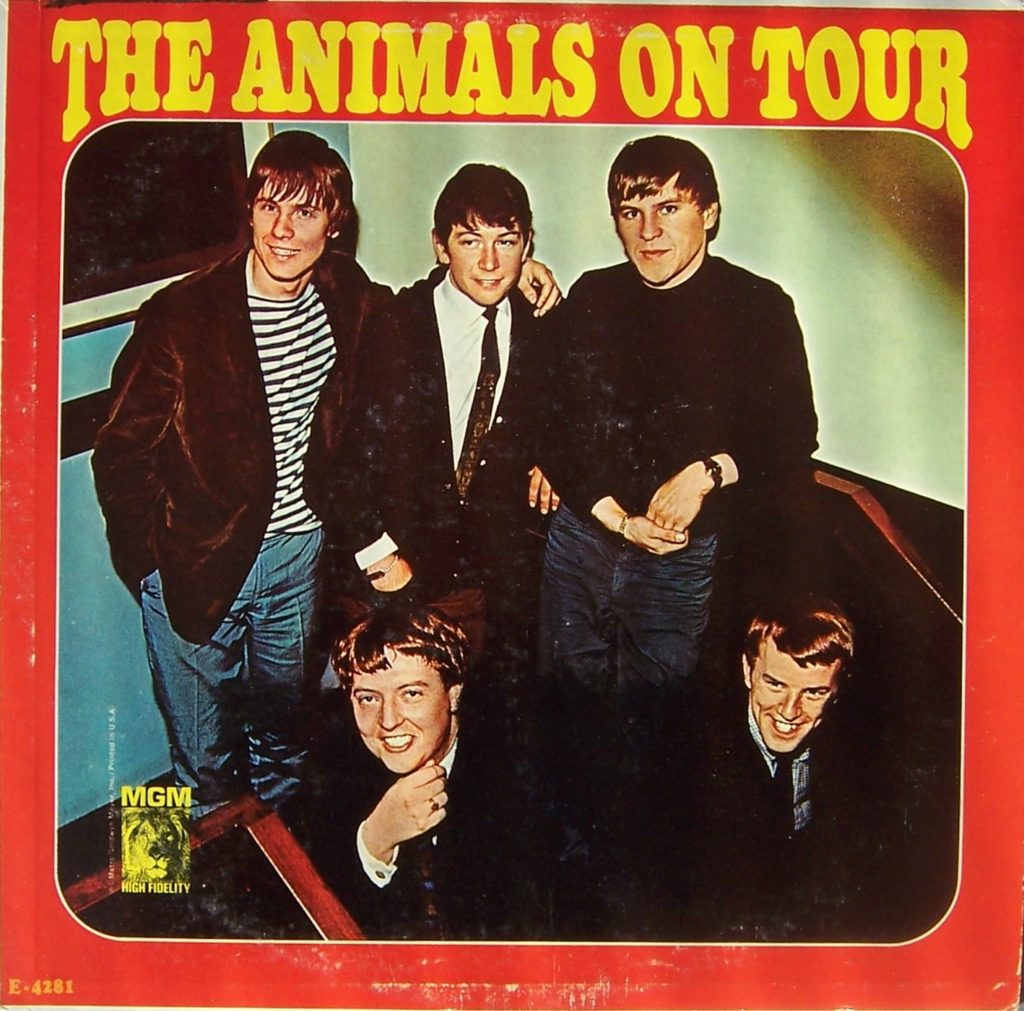 When the group first came to the States in 1964, after ‘House of the Rising Sun’ had gone to number one, you took a lot of heat for your appearance. The Beatles were supposed to be real clean-cut and then here came the scruffy Animals. Did that bother you or did it help because of the publicity you were getting from it?
When the group first came to the States in 1964, after ‘House of the Rising Sun’ had gone to number one, you took a lot of heat for your appearance. The Beatles were supposed to be real clean-cut and then here came the scruffy Animals. Did that bother you or did it help because of the publicity you were getting from it?
EB: I was pissed off because we were actually pruned. We did not need it and we didn’t want it, but somehow, we ended up getting it. If the band had been allowed to be itself it would have been better. There were times when we had natty suits that we looked cool in. But mostly we were subject to some real strange business things that the people who set up had no business setting up. As soon as we arrived here, we were offered Wrigley’s Spearmint Chewing Gum commercials. And we weren’t even allowed to write the jingles; they wanted us to sing their jingles.
Chas Chandler: They were still pushing those things on us two years later. There was one when we were dressed up as wolves on a TV show, with Little Red Riding Hood. I remember singing “The rain in Spain falls mainly on the plain” with Sammy Davis Jr.
What about some of those movies you were in, aimed at teenagers, like Get Yourself A College Girl?
CC: (Laughs) Right! Are you ready, Animals? Get ready, Animals!
EB: I guess you could say there was nobody to blame but ourselves. But that was normality then. We were caught in sort of a cultural drift from one era to another.
Watch the Animals in Get Yourself a College Girl
Was it strange to have girls screaming at you? Here you are playing John Lee Hooker tunes and 11-year-old girls are screaming at you.
Hilton Valentine: People tried to think of us as Beatles and we never even met the Beatles. But if those girls who were screaming knew what we’d do to them if we got a hold of them, they would’ve been screaming for a different reason.
Related: Eric Burdon and the Animals’ tribute to “Monterey”
What kind of working relationship did you have with Mickie Most, your producer on the early hits?
HV: We did all the work and he looked.
AP: He was there at all the sessions.
John Steel: He was a good picker, he picked songs well. But he wasn’t an engineer or a producer.
EB: He was the first of the new wave of concept men in the ’60s.
HV: A puppet king.
CC: We sort of fell for his line: “We’re in this together, lads.”
Somebody did their job, because the records took off.
EB: Oh yeah, the band made it in spite of itself.
Whose idea was it to release “House of the Rising Sun” as a single?
CC: We fought our manager and our producer for weeks to convince them to allow us to record that. And to give Mickie Most his due, the day after we recorded it, he rang us back and said it was the single.
Were you surprised at how well it did? [It reached #1 in the U.K., U.S., and elsewhere.]
AP: I knew it was a monster right away. I remember Hilton always saying it was definitely a hit.
HV: Mickie Most was talking about getting it used as the signature tune for [British rock TV program] Ready, Steady, Go!, because that was on the air every Friday. Radio wouldn’t play it.
AP: I don’t remember it like this at all, because it was a hit two weeks after it was released. Its first 10 days of release it got no airplay. Then it got Ready, Steady, Go! on a Friday and it was a hit a few days later.
EB: We were playing it on a Chuck Berry tour we did and all the kids came away from the tour remembering that song. We recorded it mid-tour. We did it in one take, they pressed it and shipped it, those fans bought it and it had initial impact. Then we did RSG, the radio wouldn’t play it, but on Saturday morning it was a hit. The next week it was number one all the way.
CC: Two weeks after that it was number one in America, two weeks after that it was number one in Japan.
Watch a performance of “We Gotta Get Out of This Place” on The Ed Sullivan Show in 1966
What was it like the first time you came over here?
EB: It was wonderful. I remember within a few hours after we arrived in Manhattan we were sitting around this long, round table with a bunch of men in grey suits in this air-conditioned room. I sat down and looked at those faces and I thought, “This isn’t what I came here for.” So I got up and walked out of the meeting and went down to the street and got a taxi and said, “Take me to the Apollo Theater.” When I got up there the show was over, and everything was closed. It started to rain and the taxi driver just left me on 125th Street. But I came back the next night on time and it just blew me away; it was great.
Related: Part two of our vintage interview of the original Animals!
Their recordings are available in the U.S. here and in the U.K. here.
- Bobbie Gentry ‘Ode to Billie Joe’: Another Sleepy, Dusty Delta Day - 07/10/2025
- Full Cyrkle: The ‘Red Rubber Ball’ Band Bounces Back - 07/09/2025
- When Brownsville Station Were Smokin’ - 07/05/2025

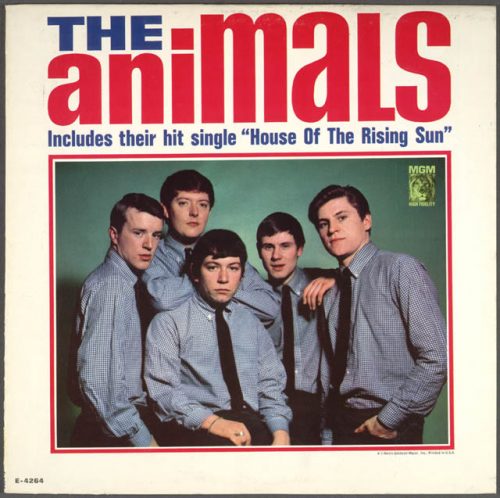
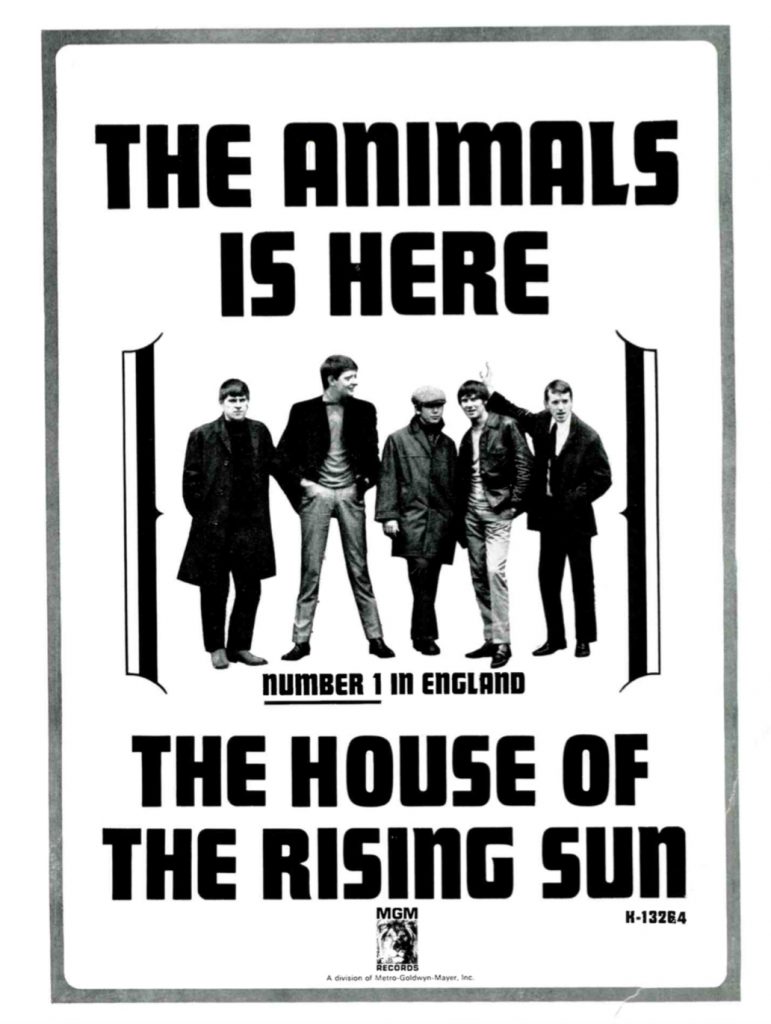
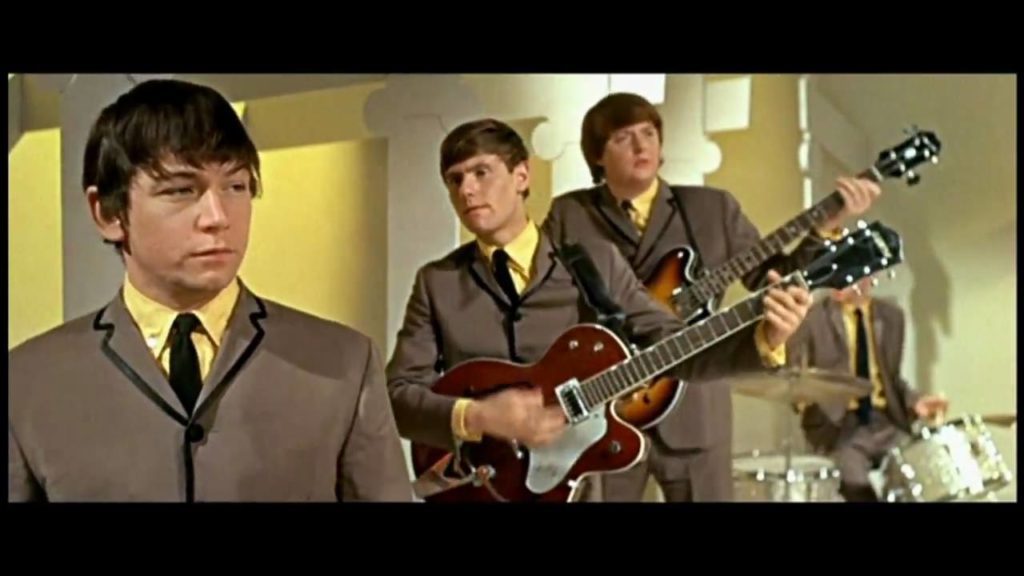
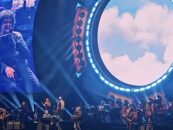
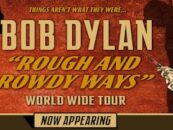
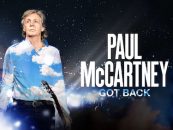
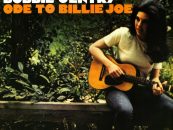

4 Comments so far
Jump into a conversationTo me the animals were one of my best British rock bands ever came out of the British Invasion and the I saw the animals in 1983 and there of my favorite bands
Never paid much attention to the Animals or the Kinks up until about 10 years ago when I discovered the music site Slacker and used to listen to different types of music while I worked. Both of these bands were fantastic, just regret that it took me all those years to see that.
The Animals are definitely one of the best Blues-Rock N Roll bands to come from the 60s.Even Eric Burdon and The Animals were great! I love the psychedelic sounds they produced. They will always be a big part of the British invasion.
To reference remark by TEXASTEA, when I hear the question: ‘Beatles? or Stones ? ‘, I think ANIMALS & KINKS! I saw Eric Burdon w/ Brian Auger in Houston in1991 @ Rockefeller’s, (actually recorded 90 min concert on small audio cassette recorder, turned out good quality.] Eric was drinking, audience was drinking, ‘a splendid time was guaranteed for all’! He was great Brian was great as musician & MC [love Brian’s records as well!), and as Eric seemed to be more intoxicated, he got bluesier/angrier, & more chatty. & reminingcing…it is so great to see your [my] beloved artists when you [I] have the chance! He’s still with us, and I listen to Animals, Eric B’s post-Animals, his psychedelic cds [LOVE IS.. a fave!], his War cds, his cds w/ Jimmy Witherspoon…those albums from 1964-1974 are my prized possessions…those early records esp were my constant listening pleasures, more than Beatles or Stones (pretty much done after Beggar’s Banquet, can’t watch them as ‘elderly gentlemen’ these days)..AND THANK YOU BCB for daily sending emails that reference theses great beloved bands, records & times…THANK YOU for bringing me of all this great music & history! A masterful job! Plus keeps us [me] young & healthy..